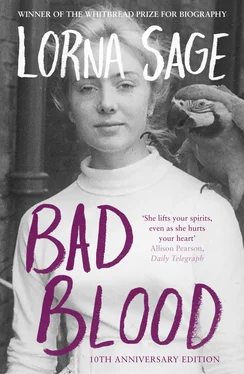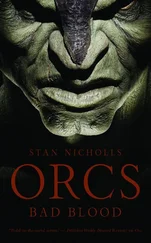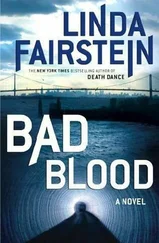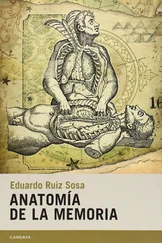Everything is suddenly on the move, unfixed, the old landmarks of his depression left behind in the Rhondda – along with his wife and son and Valma too, for the moment, since the vicarage in Hanmer is to be cleaned and refurbished a bit, and in any case they need time to pack up. All at once he’s alone in this new place (‘a lovely spot’) where people don’t know him from Adam. Mobility. Freedom of a kind. He must take up his duties immediately, now that the old Canon, long ailing, has finally admitted defeat and been persuaded to go. His two churches are three miles apart down shaggy, meandering country roads blistered with cow pats and hemmed in by weedy ditches. He acquires a bicycle, and finds himself walking it up gentle hills (no mountains here) and freewheeling down again on the other side. The diary shows him threading his way along a necklace of new place-names – Bangor-on-Dee, Wrexham, Ellesmere, Horseman’s Green, Eglwys Cross, Bronington, Bettisfield, Whitchurch – marking out a map on which, more and more often, his path crosses that of the district nurse, Nurse Burgess, who of course has a bicycle too …
Just days before, ironically enough, he is all prepared to be lonely and bored. ‘Hanmer is very quiet,’ he notes ominously, ‘very … Time hangs somewhat on my hands in this place.’ Then the new bike arrives. There’s an August heatwave, the kids are swimming in the mere just as we would twenty years on (except that in 1933 it’s only the boys) and on the very day he admits to taking his first ride with the nurse ( ‘Here the fun begins’ ) they are both summoned to the mereside in their professional capacities, because one of the young men has drowned. It’s the beginning of a tragic sub-plot that keeps up a kind of background thrumming for months to come: drowned Jack is Molly’s young man, bereaved Molly comes to work in the vicarage as a maid, loses her mind, Nurse Burgess tries to get her put away and so forth. For now, though, Jack’s death is the main, telling event, a focus for feeling. It permeates the humid atmosphere and puts paid to any illusion of serenity. His body doesn’t surface for three days and the whole of Hanmer keeps a vigil, people standing in hot huddles talking under their breath, gazing at the innocent flat water only dimpled with fish taking flies. He was a strong swimmer, too, so there’s a niggling element of mystery about his death: cramp, or weed, or cold currents must have got him and it’s true – was still true twenty years later – that sometimes when the water near the edge was soupy warm you’d suddenly find your legs entwined with chill streams snaking in under the lily pads, just before the bottom shelved right away.
Grandpa was swiftly out of his depth as well, but he was having a marvellous time and only noticed how far he’d gone when his family actually turned up. Out of his depth, and in his element . He and Nurse Burgess, now MB for short in the diary, pedal to paradise every day of the week, including Sunday. Trailing a cloud of midges, they’d hump their bikes off the road, through some muddy gateway and, behind the hedge, hug and knead each other among the mallows and Queen Anne’s lace and nettles dusty with pollen. Perhaps they spread his tobacco-scented black cassock on the ground to protect them from ants and the crawling wasps drunk on crab apples. Or more likely they’d keep their uniforms on and each get to know the other’s body in bits. He is lean and wiry, MB in her starched blue linen is substantial but not yet stout, well muscled because of all the exercise she gets, her arms mottled pink and white from soap and sun. She has a midwife’s hands. His fingers are inky and curve to caress an imaginary pipe bowl, or a preacher’s palmful of air, and – now – the generous breast where her watch ticks away. It’s nearly always afternoon, they are supposed to be out to tea, strawberry jam and fruit cake, and so they are, so they are. Cattle watch incuriously, sidling towards the gate, ready to herd along the lane for milking. And they wrestle each other into submission, and relax a long moment, listening with half an ear to the trickling ditch the other side of the hedge, where duty calls. Although it’s hard to hear the summons for the rooks and wood pigeons.
So I imagine them celebrating in advance their private Harvest Festival, the event in the church calendar that strikes the richest chord in this pagan place, as he’ll discover. ‘We plough the fields and sca-a-a-tter / The good seed on the land.’ Was that how they managed contraception – coitus interruptus , aggravating the sin of adultery? Deliberate infertility, the luxurious, forbidden pleasure of taking pleasure by itself , must have spiced their lovemaking. Theirs was a feast of blissful barrenness. MB may well have used a sponge and a spermicidal douche. A nurse, being a professional spinster, was assumed to know about these things; and in any case all nurses had lost their conventional aura of feminine innocence – their collective moral virginity – because of their intimacy with other people’s bodies. They administered enemas and sponged the sick, and washed the dead and laid them out and plugged their orifices. They helped other women’s babies into the world. At the same time, since a nurse couldn’t keep her job and marry, she was a bit like a nun – a nun in a salacious story.
Nurses were suggestive. And so, for slightly different reasons, were priests of the Church of England, who could and did marry. Grandpa had the shamanistic glamour associated with the magical ability to transform the bread and wine, of course, and he combined it with licensed access to other people’s private spiritual parts. He officiated at a distance in church, but also close to, at home. He talked with women, and with the aged and the sick, during the day when other (real) men were out at work. An Anglican vicar was, in terms of cultural fiction, a eunuch of sorts. Yet everyone knew that actually he wasn’t vowed to celibacy, hence the comic naughtiness associated with his situation, too. Perhaps that is why it’s inviting to picture this love affair – the Vicar and the Nurse – in the style of a Hogarth etching of carnival appetite on the rampage. Flesh triumphs over Spirit. An allegory of hypocrisy. The holier (or in MB’s case, certainly cleaner) than thou rutting away in the ripe season, no purer than the peasants to whom they preached hygiene and holiness.
Peering down the years, a voyeur through that dense bramble hedge, it’s hard to see them except in outline, etched in archetypal postures. But why not remake them out of Arcimboldo fruit and veg, since it’s a less moralising transformation? O father, at last I see the fruition of my desires, in apple cheeks, cabbage curls and a damson mouth.
On 31 August he pauses for a second to count his blessings: ‘The end of a wonderful month for me. Thanks be to God.’ A couple of days later he foresees possible ‘complications’ with MB, but for now he’s so happy he steps right out of character and simply refuses to brood. He has to admit to having a good time: ‘Well I must take life as I find it and make the best of every circumstance,’ he writes, for all the world like a saintly stoic accepting the delights the Lord has seen fit to pelt him with.
He makes a brief return trip to South Wales, where Hilda and the children are staying at Hereford Stores, packed up to leave. While he’s there he sneaks some vertiginous glimpses of his hated old parish – ‘went for a walk over the Coronation Hill within sight of the parish of Ynyscynon’ – before travelling back north on his own, to be met in Wrexham by MB. Then, on 13 September, the family ARRIVE IN HANMER in capital letters. Hilda has brought her beloved sister Katie along to help and to soften the blow of leaving the Rhondda, but this doesn’t prevent her from being ‘very down in the mouth’ at her first sniff of country air. ‘She is utterly miserable this evening,’ he tells the diary. The next day she is no better (‘terribly miserable’) and the day after that he sends them off to go shopping in Whitchurch, the nearest town, six miles away, with the same result – ‘Hilda again miserable.’ On Saturday, taking stock, he finds his own secret sense of well-being wearing a bit thin: ‘Am not feeling very well again. This is due to the pressure of moving and Hilda’s lack of spirit.’ He seems to feel, rather unreasonably, that she should be sharing in his elation, sympathising with the revolution in his feelings. ‘I have to bear everyone’s burdens and my own,’ the entry ends, with a surge of self-pity.
Читать дальше












